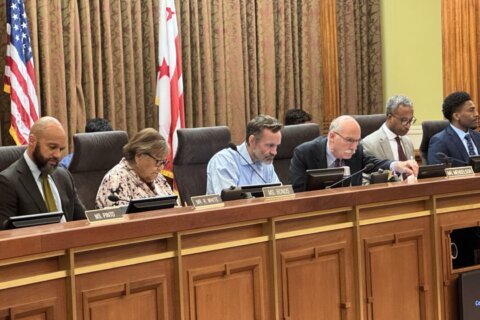A new presidential administration can bring changes not just on Capitol Hill but to the wider D.C. region.
Those changes can impact the D.C. area not just politically but also financially. That could mean big things for the region’s construction, transportation and telecom firms, according to some of the area’s top business leaders.
During a roundtable discussion sponsored by the Greater Washington Board of Trade, local business leaders agreed that the COVID-19 pandemic would be the absolute top priority for the new administration, but that there are also other accomplishments they hoped the new administration would tackle — including infrastructure.
“That physical connection, the digital connection, cyber, all of those priorities are targets for an infrastructure improvement, infrastructure spending, that are likely to come from Congress,” said Larry Di Rita, greater Washington market president for Bank of America.
“Everybody loves infrastructure,” Di Rita said, likening the priority to the Paycheck Protection Program, the popular loan that has kept small business employees employed ruing the COVID-19 pandemic.
“If he’s (Biden) looking to get something done early that demonstrates some level of comity and some level of achievement, infrastructure spending would be pretty high on the list,” he added.
Other participants in the roundtable included Karishma Page and former U.S. Rep. Bart Gordon, who are both partners with K&L Gates, and John Mayo, a professor and the executive director of the Center for Business and Public Policy at Georgetown University’s business school.
There also seemed to be some thought that a discussion about the federal minimum wage could be on the table, though there was less certainty that there would be enough support to actually get something done, with Page putting the odds at “sub-30%” that it’ll happen.
“One of the things to watch, especially on a debate like this, is the number of Republican senators that are up in 2022,” Page said. “Twelve Democratic senators that are up, largely in very safe seats, a number of Republicans up in states that are increasingly purple.”
But Mayo said any minimum wage increases are more likely to happen at the state and local level instead, since that’s one area that they’ll be able to actually make progressive policy happen.
“There are constraints at the state and local level that don’t exist at the federal level,” said Mayo, referring to balanced budget laws there. “So they’re going to be much more constrained, especially coming out of a pandemic. The fiscal challenges that states and localities are going to have are going to be prodigious.”
“I think there is going to be a focus on bipartisan policy,” said Page, who thinks both sides will find common ground on health care stabilization, surprise billing and drug pricing, though not so much about access and affordability. “A lot of work has already been done on a bipartisan basis there.”








